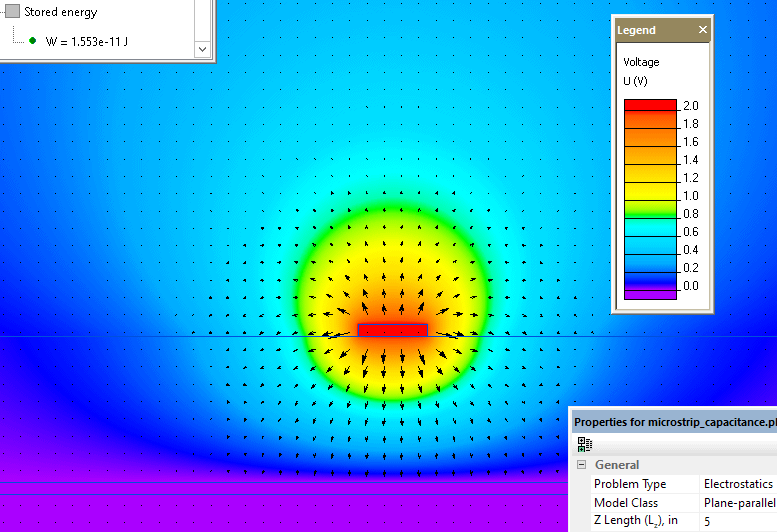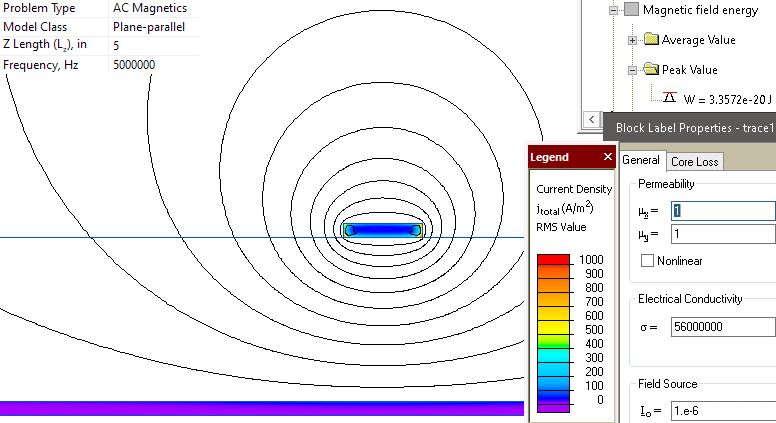Microstrip self impedance Z0
QuickField simulation example
This is an example of the microstrip line simulation, performed with QuickField software.
Problem Type
Plane-parallel problem of electrostatics and AC magnetics.
Geometry
Given
Relative permittivity of air ε = 1;
Relative permittivity of dielectric ε = 4.3.
Frequency f = 500 MHz.
Line length Lz = 5 inches
Task
Determine the self impedance of the microstrip transmission line.
Solution
To calculate the impedance we should find the capacitance C0 and the inductance L0.
Capacitance is calculated in the electric problem. Positive potential is assigned to the conductor, zero potential is assigned to the ground plane. QuickField calculates the total stored electric field energy.
C0 = 2*Energy / ( Potential difference ) ²
Inductance is calculated in the AC magnetic problem. AC current In the conductor flows in one direction. The return current flows in the ground plane. QuickField calculates the total stored magnetic field energy.
L0 = 2*Energy / |Current| ²
Result
C0 = 2*1.553e-11 / 2² = 7.8 pF (per 5" of line length)
L0 = 2*3.35e-20 / (1e-6)² = 67 nH (per 5" of line length)
Impedance Z0 = √L0/C0 = 92.7 Ohm.
Voltage distribution in the microstrip line.

Current density distribution in the microstrip line.

- Video: Microstrip self capacitance C0. Watch on YouTube.
- Video: Microstrip self inductance L0
- Download simulation files (files may be viewed using any QuickField Edition).